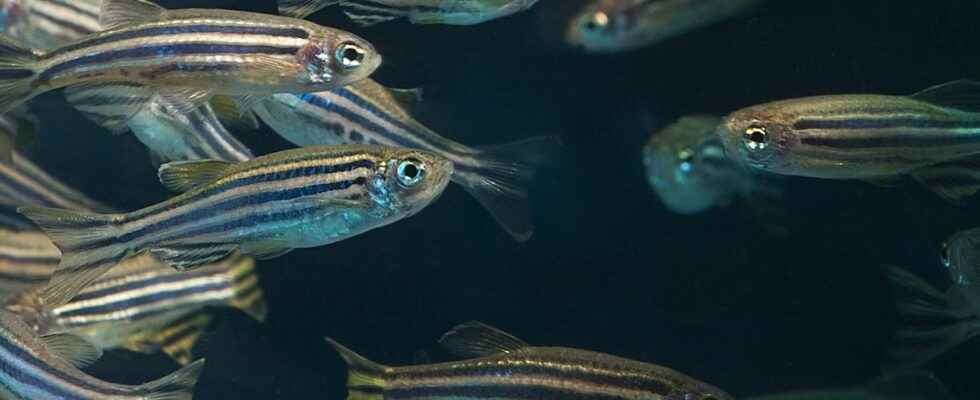You will also be interested
[EN VIDÉO] This decapitated sea slug can regenerate its entire body These species of sea slugs have an amazing ability to regrow their bodies. Even organs such as the heart can be regenerated! © Sayaka Mitoh
At a myocardial infarctionthe lack of oxygen supply caused by the obstruction of a artery coronary leads to damage to the heart cells, or even necrosis. In this case, scar tissue forms, the injury remains indefinitely. The heart will no longer be able to pump as well as before. Returning to its optimal state would require a real regeneration of heart tissue, impossible for humans, and all mammals in general.
However, researchers report in a study published in the journal Nature Genetics than the zebrafish, known to be able to regenerate lost limbsor even its retinas, can also regenerate his heart cells! The team therefore wanted to analyze the mechanisms involved in this cardiac regeneration process. To this end, they simulated myocardial infarction lesions in the hearts of zebrafish, and then observed the regeneration of cardiomyocytes (heart cells).
Three new types of activated fibroblasts
The repair process begins as in mammals: an inflammatory response followed by a healing connective tissue cells called fibroblasts. But, where in humans, the answer stops, in zebrafishThis is just the beginning. “They form new cardiomyocytes, capable of contractingexplains Jan Philipp Junker, co-author of the study and biology researcher. We wanted to identify signals from other cells and help drive regeneration.”
In zebrafish, three new types of fibroblasts temporarily activate, capable of reading and expressing more Genoa than the other cells, thus to produce other protein. When the team disabled these cells, more than regeneration. These fibroblasts come, according to the team, from the epicardium and the endocardium, the two layers that surround the myocardium. They conclude their study on the possibility “to open up possible approaches to modulate the regenerative capacity of the heart of vertebrates”although their “knowledge of the cellular composition of the regenerative niche and the underlying signaling interactions remains incomplete”.
A desire to escape for the summer?
To celebrate the holidays as it should be, discover the Mag Futura at the preferential price of €15 instead of €19, i.e. a reduction of 20% !
On the program of this issue: a dive into the heart of 4 scientific themes that will mark 2022, from the Earth to the Moon:
- What mysteries does the Moon still hide from us?
- Will we soon be able to cure everything thanks to genes?
- How to feed the world without destroying it?
- Can artificial intelligence become truly intelligent?
What is Mag Futura?
- Our first paper journal of more than 200 pages to make science accessible to as many people as possible
- 4 major scientific questions for 2022, from the Earth to the Moon
- Home delivery*
*Delivery is made in France (excluding metropolitan France), Switzerland, Belgium.
Interested in what you just read?
